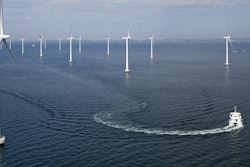BUSINESS-01
Strong Economy; "Alexa" Caught Up in U.S. Murder Mystery; Nuclear Woes
Trigger Toshiba Share Nosedive; - Part 2>
Sherisse Pham, Danny Cevallos, Matt Rivers >
Anthony Chan, Chief Economist, Chase; Neil Taylor, Creative Partner, The
Writer; >
peace process. Donald Trump pats himself on the back for the strength of
the U.S. economy. Can Alexa solved this murder mystery? Police what to
Amazon to share what the echo knows. Shares of Toshiba were hammered after
reporting that it would lose billions of dollars on its nuclear
construction business. China is looking to turn Tibet into a tourist
nation. >
Markets; Asia; Murders; Technology; Crime; Tourism;>
A report says turkey and Russia have agreed on a draft nationwide cease fire in Syria. It comes from the Turkish state run news agency, but there has been no confirmation from Turkish, Russian or Syrian officials or rebels groups on the ground.
German police have detained a Tunisian man with possible ties to the Berlin Christmas market attacker, Anis Amri. That word from the prosecutor's office comes nearly ten days after the deadly attack. The man's home and office were searched after his number was found on a mobile phone belonging to Amri.
The acting head of Russia's anti-doping agency is disputing a "New York Times" report quoting her acknowledging a Russian doping program. The "Times" quoted her as calling it an institutional conspiracy. The Kremlin denies the allegations of state sponsored doping but the "Times" says it stands by the accuracy of the report.
Shares of Toshiba were hammered after reporting that it would lose billions of dollars on its nuclear construction business. The stock closed down 20 percent in Tokyo. It is the latest setback for electronic giant. CNN's Sherisse Phan has more from Hong Kong.
(BEGIN VIDEOTAPE)
SHERISSE PHAM, CNN CORRESPONDENT: Eleni, more trouble for Toshiba. The company stock tanked today after it said that it's expecting billions of dollars in losses from its takeover of a U.S. nuclear construction business. Last year Toshiba's U.S. nuclear subsidiary acquired the nuclear business CBNI, Stone & Webster, and the two companies were working on nuclear projects in the United States, in South Carolina and Georgia. But then yesterday the company's CEO said those U.S. projects are running behind schedule and that the cost to complete them will "far surpass estimates." He at one point bowed before cameras saying, he is deeply sorry for the situation.
Now all of this has really rattled investors. The company stock is down more than 20 percent today and that follow as drop of 12 percent yesterday. And this all comes at a time when Toshiba is still trying to recover from an embarrassing accounting scandal where the company admitted it had doctors financial results for years. Now there were also write-downs on other nuclear operations earlier this year, and all that together means investors are very, very wary of the company. Sherisse Pham, CNN, Hong Kong.
(END VIDEOTAPE)
GIOKOS: Police in the U.S. state of Arkansas are hoping an Amazon Echo can help solve a murder. They are seeking recordings from a device that was in a house where a man was killed. Amazon is refusing to turn over the data. The case is renewing the debate about technology and privacy. CNN legal analyst, Danny Cevallos, is joining me this evening. Thank you very much, Danny, for joining us.
DANNY CEVALLOS, CNN LEGAL ANALYST: Glad to be here.
GIOKOS: Should Amazon hand over this information?
CEVALLOS: It depends on your viewpoint. If you're law enforcement you want everybody to give you all the information you ever ask for. But amazon has some very important concerns, and that is safeguarding not only its own privacy, but more importantly the privacy of its customers, who have entrusted it with this information in the cloud. And we're in a new frontier of the law. our old laws are antiquated in dealing with these new concepts, like data in the cloud.
[16:35:00] Things that live in the ether and that don't live in hard cases like phones and other things.
GIOKOS: If you have any kind of device in your home and you're accused of murder, you're embroiled in a murder case, anybody can be searched. Right? They can get a search warrant, and --
CEVALLOS: Not only can anything be searched, it routinely is searched.
GIOKOS: So, why is your Echo then anything different?
CEVALLOS: In many ways -- well, people are concerned because it's something that actively listens 24 hours a day. But there are a lot things, technology and data has been convicting people for a long time. The information in your computer can be subject to a search warrant and all kinds of crimes exist on computers. Whether it's that, your phone, anything else. The thing that make this is a new sort of era is that nobody turns on the echo. It's always listening and when you activate it, it sends that voice -- information to be translated out in the cloud to data, returns back to your home and then it acts on those commands. And that's what has people concerned.
GIOKOS: It's always listening, but is it always recording?
CEVALLOS: No. That's a big difference. It's listening for is activation words. The magic words, hey Alexa or hey Google, that spring it into action. Once that happens however, it is recording I believe both locally and sending it out into the cloud. But as a defense attorney, take what I say with a grain of salt. The idea that the police in this case are seeking a search warrant for Amazon customer private data on the off chance that somebody said, "Hey Alexa," and then said something like I shot the sheriff or I killed so-and-so is really a bit of a stretch. But that's law enforcement's approach. They cast a wide net and hope that they can get all this treasure trove of data and mine it for something that matches the theory of their case. Again, jaded defense attorney. I understand.
GIOKOS: So, what do you think we are going to see from here? Because it reminds me of what happen with Apple and the FBI. Can we draw parallels?
CEVALLOS: You absolutely can. Because increasingly law enforcement is demanding that large companies like Apple or Amazon or Facebook, not just open up their data, wherever it may be, but even go further and actually do things. Create software or create this data for them so that the police or the law enforcement whoever, the FBI, can search it. The real issue going forward is to what degree when we give our data out to a third-party, must that third-party make it available to law enforcement? At what point does the greater good of law enforcement get balanced against our privacy.
GIOKOS: So, it's a big gray area. Right?
CEVALLOS: It's as gray as gray could be. It's the greatest area these days. Or in Apple's case that white of the box that you get when you get your gadgets.
Okay. Thank you very much. Much appreciative of your time, Danny.
We'll be more with QUEST MEANS BUSINESS in just a moment. Stay with us.
(COMMERCIAL BREAK)
[16:40:00] GIOKOS: Welcome back. New Year's Eve celebrations are edging closer and no matter where you're seeing in 2017, you're sure to see a lot more security. There are huge challenges in keeping popular sites safe during the holidays and following the Christmas market attack in Berlin, many European cities are on high alert. Melissa Bell has more from Paris.
(BEGIN VIDEOTAPE)
MELISSA BELL, CNN PARIS CORRESPONDENT (voice-over): As in Germany, the end of the year in France means colorful and crowded Christmas markets. Even before last week's attack in Berlin, security here on the Champs Elysees was tight, ensured by regular police patrols, 200 cameras and 60 concrete blocks.
PIERRE-HENRY BRANDET, SPOKESMAN, FRENCH INTERIOR MINISTRY (through translator): Large crowds mean strong security measures with controls, searches, protected perimeters. And all of that was obviously taken into account well before what happened in Germany. Although of course, the Berlin attack reminds us of the need for vigilance.
BELL: Vigilance that will mean 10,000 soldiers on the streets of France over the holiday period, reinforcing a police presence that is 91,000 strong. Extra security measures announced earlier this month by this man, Bruno Le Roux, visited the Champs Elysees on the very week of his appointment as interior minister. He called on Parisians to show their thanks.
BRUNO LE ROUX, FRENCH INTERIOR MINISTER (through translator): They are citizens who are at the service of our security. They pay a heavy price and I ask that in this holiday period, there be demonstrations of friendship, of solidarity towards those who ensure the security of French people in this difficult period.
BELL: For more than a year now, France has been living under a state of emergency. Bernard Cazeneuve, the incoming prime minister told Parliament, why it was both necessary and working.
BERNARD CAZENEUVE, FRENCH PRIME MINISTER (through translator): Since the beginning of the year 2016, 420 people with links to radical Islamism were arrested. And 17 attacks planned on the French soil were foiled.
BELL: After the speech MPs voted to extend the state of emergency until July of next year. But for those involved in policing the streets of Paris, the extra measures are beginning to take their toll.
LUC POIGNANT, PEERS POLICE UNION REPRESENTATIVE (through translator): Obviously, we have the means to ensure Paris security during the holiday period. Extra riot police will be deployed and also extra mobile units. But if I may ask, at what cost. What I mean, there is a human cost for the security forces in general. Whether policemen or shambam (ph), we're already giving of ourselves, of our time and at a cost to us and to our families.
BELL: For now, though the interior ministry insists that such sacrifices are necessary.
BRANDET (true translator): We have to maintain this high level of vigilance in the face of a threat that remains very high. Even as we continue to live, to live freely, to live peacefully.
BELL (on camera): Authorities here in France are relieved that the Christmas period has gone as smoothly as it has. All eyes now turn to New Year's Eve when hundreds of thousands of people will be here on the Champs Elysees to bring in the new year that they hope will be more peaceful than the two that preceded it. Melissa Bell, CNN, Paris.
(END VIDEOTAPE)
GIOKOS: And we'll have more QUEST MEANS BUSINESS in just a moment. First though, we're taking a tour of Hong Kong with the art collector Alan Lo, in this week's edition of Around the World.
ALAN LO, HONG KONG ART COLLECTOR AND ENTREPRENEUR: Welcome to Hong Kong. So, we're in the M+ Pavilion. The art scene in Hong Kong is changing so rapidly. It's amazing to see how in a short four years, how M+ has accumulated such an amazing collection. It's practically the one major institution that kind of encompasses art and design from all of Asia. It's almost like Tate and Pompidou combined but very much set in the Asian context.
So, we are in the fabric market is the hears of Sham Shui Po. As you walk down these streets, it feels like nothing has changed in the last 30/40years and Sham Shui Po is probably one of the last remaining neighborhoods that still has kind of the old Hong Kong quality that is still largely untouched.
We are in Wan Chai Market, one of the best markets in Hong Kong. As much as we're living in the 21st century, there is still kind of that tradition going where there is still kind of joy of like that routine of going to the market and buying your food. You still have this kind of crazy food street but in the middle of this whole urban gentrification with like luxury apartments a block away. I think that's a part of the charm of Wan Chai.
(END VIDEOTAPE)
[16:45:00] (COMMERCIAL BREAK)
GIOKOS: We'd like to take you somewhere rarely seen by Western journalists, Tibet. In September, for the first time this ten years, CNN was granted access as we discovered China is looking to turn Tibet into a tourist nation. But CNN's Matt Rivers explains, the cost of that transformation is more than just financial.
(BEGIN VIDEOTAPE)
MATT RIVERS, CNN INTERNATIONAL CORRESPONDENT (voice-over): Ten thousand feet up, surrounded by stunning beauty. We stand in one of the most restricted places on earth. This is Tibet, a region the Chinese government rarely allows foreign journalists to see. For CNN, it's been ten years since our last visit. Back then, tourists were just trickling in. Today the floodgates are opening.
This year, some 24 million tourists will come to the Tibetan autonomous region, though some question if the number can really be that high. By 2020 authorities except upwards of 35 million including foreigners who still need a special entry permit. They'll stay in the dozens of hotels like this one, five stars, international brands. Not long ago though, most western companies shunned this place. After a failed revolt against Chinese rural in 1959, the 14th Dalai Lama, Tibet's spiritual leader, fled overseas and has been speaking out against what he calls Beijing's religious and cultural suppression ever since.
A controversy aside, companies are lining up to come here as China's economic appeal keeps growing. We were invited here to cover an international tourism expo in Lhasa, the Tibetan capital. It was a government organized trip where minders followed us everywhere we went, determined to show a peaceful and happy Tibet. Things like painting, dancing and opera. And then there was construction. So much construction.
There are infrastructure needs that are being gladly constructed and improved says, Wong Sung Ping (ph), a tourism official. We are building a world class tourist destination. Rome was not built within a day.
RIVERS (on camera): Since leaving Lhasa, we've been traveling on dirt roads like these for hours, for miles. But eventually that will change. Because of giant construction projects like that one right there. Eventually that will become a modern highway stretching for hundreds of miles. And you can only imagine how much this remote part of Tibet, some 14,000 feet up, will change once it's finished.
RIVERS (voice-over): This woman lives at the end of that new highway. She was the only Tibetan we were allowed to speak with, handpicked by Chinese officials. She got subsidies to turn her home into an end for tourists. There's even a picture of Chinese president, Xi Jinping, on her wall.
RIVERS (on camera): Does she ever worry that part of the Tibetan culture is being lost here?
[16:50:00] RIVERS (voice-over): Despite being surrounded by Chinese officials she only offers an uneasy smile, and says she's not sure. Critic say locals are being marginalized as the Chinese make money hand over fist using Tibetan culture as a selling point. This brand-new village with faux Tibetan elements will open in a few weeks, ready for business.
RIVERS (on camera): In order to build this village, the government had to forcibly remove many Tibetan families who were living and working here. Chinese officials tell us that those families will now be allowed to move back in, perhaps reopen some businesses. But these ground floor buildings are big. The spaces are large, rent might be high and these families are poor. We ask what had kind of businesses those people could reopen, the government said perhaps they could sell biscuits and tea.
RIVERS (voice-over): Perhaps questions like these are why the government won't let us roam freely here. But to any criticism, Chinese officials argue all these changes have actually been good for the Tibetan people. Household incomes are way up and so are education levels. More tourists mean more paved roads, cell towers and good Internet. But at what cost? The answer for many both inside and outside Tibet appears to be one the Chinese government doesn't want to hear. Matt Rivers, CNN, Tibet.
(END VIDEOTAPE)
GIOKOS: That's incredible insight there. Let's shift gears now and "The Writer" magazine has named the business buzzword of 2017. It will be heard over and over again in your bosses office, most likely driving you mad. In physics, it's the point at which something balances. In basketball, it's the foot you keep on the floor when you're not dribbling the ball. For the cost of friends, it means this.
(BEGIN VIDEO CLIP)
DAVID SCHWIMMER, FRIENDS, TV SHOW, ROSS GELLER: Pivot, pivot.
MATTHEW PERRY, FRIENDS, TV SHOW, CHANDLER BING: Shut up, shut up.
(END VIDEO CLIP)
GIOKOS: Ok, it's not shut up, it's pivot. Yes, the business buzzword of 2017 will be pivot. Definition, to turn on or as if on a pivot. Neil Taylor, is in London. He's a creative partner at "The Writer". Thank you very much for joining us, sir. So, OK, what is -- what is pivot going to mean for the business world? It's a word I've heard so many times from CEOs especially startup companies. What will it mean for us in the next year?
NEIL TAYLOR, CREATIVE PARTNER, THE WRITER: Right. Well, it means what we all think it means. Which is just to change direction. Do something differently to what you were doing before. But I guess if you just say as a business leader, hey, we've tried doing that it didn't work so we will do something else. That can sound a bit random and a bit panicky, so the reason why business leaders are loving it is because it has this kind of meaning from physics. So, it sounds a bit technical and a bit thought through and like you know what you're doing. So, it just means change. But makes you sound a bit clever as you change.
GIOKOS: And hopefully not like the Friends scene when someone says pivot, everyone will try to pivot together, right? I find this fascinating because it's interesting that businesses need to take change, need to start acting differently in the new economic environment. Some of the research that you've done shows that people are using this word more and more. Is this a sign of the times?
TAYLOR: Yes, absolutely. Because stuff is volatile in business and in politics, as well. Right? This is a word that has been used a lot in politics in the last year, as well. There is something about the specificity of it. The fact that it has a technical meaning, I think it's supposed to make the rest of us reassured that the people in charge know what they're doing.
GIOKOS: Where have you heard, this word showing, you know, some really big movements specifically out of the business world? You had mentioned the likes of Blackberry being very clear about the way that they are pivoting.
TAYLOR: Yes, absolutely. Well, what we look for at "The Writer", we're a language consultancy and we work with businesses all over the world and basically, we put words on our watch list. Things that we think are spreading. And then we listen out for them from in speeches from CEOs and annual reports and even also just day to day meeting and power point presentations. And having spotted it, pivot was the one where we thought, yes, definitely that is creeping into just about every meeting and a bit of communication in 2016 and it looks like it's going to carry on.
GIOKOS: OK, what are the runner up words that you saw coming through? We've heard a few other phrases that are going to be popular.
TAYLOR: Yes, there are a couple. One is tiger team, which just means a group of experts who you've brought together to solve a particular problem. And so, I know George Bush was asked -- George Bush -- blimey, Trump was asked, did he have a tiger team in place to handle the transition.
[16:55:00] And also, the word swim lane. Which we all think we know what that means, but that is being used to mean an area of responsibility within a business. So instead of having to say could you keep your knows out nose out of what I'm doing, you could say maybe we should all stick to our own swim lane and that is a slightly less aggressive way of getting that message across.
GIOKOS: Oh, interesting times. Thank you so very much, Neil, for your insights. We'll be back with more in just a moment, first a highlight from "MAKE, CREATE, INNOVATE."
(COMMERCIAL BREAK)
GIOKOS: Let's take one last look at how the markets traded at the corner of Wall and Broad here in New York. It was a day of disappointment for the Dow. Take a look at that. We were up around 19 points in midday. Very close to that 20,000 level. It finished down 111 points. You can see it so close at 19,833. Moving further away from the market milestone. But remember, we've got two trading days left of the year. The NASDAQ also fell almost 1 percent, but it's low volumes and its holiday season.
On the European market front, a much better day than Wall Street. The FTSE 100 finished at an all-time high on this first day of London trading after the Christmas break. Mining stocks help drive gains. Markets elsewhere had a flat day. Germany was up slightly but markets in France and Switzerland were slightly in the red.
If you want a daily digest of the top business stories delivered to your inbox of scribe to the QUEST MEANS BUSINESS newsletter featuring Richard's Profitable Moment, and all of the top headlines from the rest of the CNNMoney team. Go to CNNmoney.com/quest to subscribe. And that's QUEST MEANS BUSINESS. I'm Eleni Giokos in New York. Thanks so much for watching.
END
END
(Copy: Content and programming copyright 2016 Cable News Network, Inc. ALL RIGHTS RESERVED. Copyright 2016 CQ-Roll Call, Inc. All materials herein are protected by United States copyright law and may not be reproduced, distributed, transmitted, displayed, published or broadcast without the prior written permission of CQ-Roll Call. You may not alter or remove any trademark, copyright or other notice from copies of the content.)






















